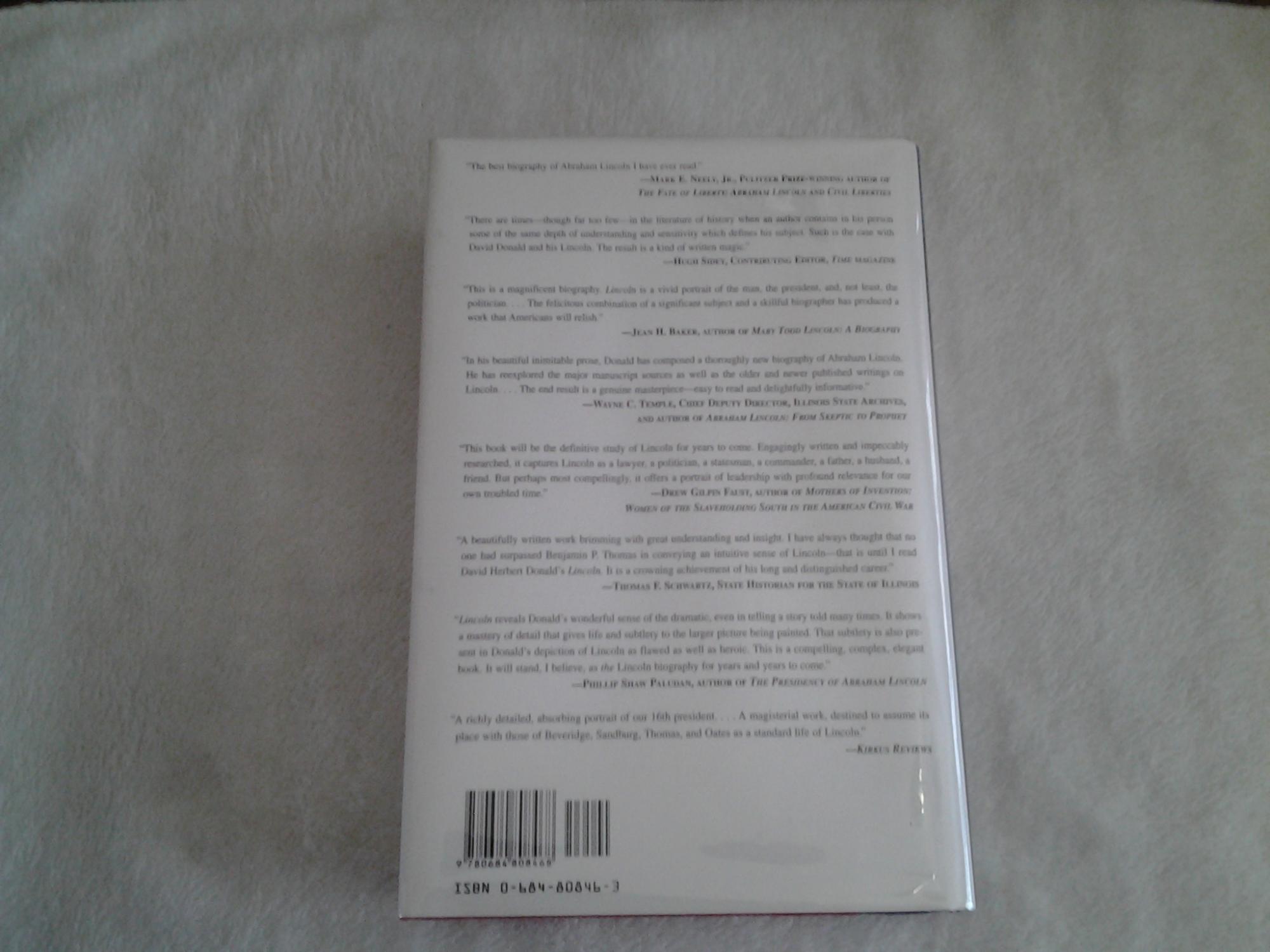

In 1952, he returned to Columbia University, a tenured professor at the age of 31. Donald also produced a number of pathbreaking essays, most notably “Toward a Reconsideration of Abolitionists” in Lincoln Reconsidered (1956) and “Died of Democracy” in Why the North Won the Civil War (1962).ĭonald was offered a position as an instructor at Columbia in 1947, where he taught for two years before joining the department of history at Smith College. In his study of Lincoln’s legal partner and biographer, Donald dubbed Herndon the author of “the most controversial Lincoln biography ever written.” Donald’s debut was heralded by reviewers and launched his phenomenal publishing career of more than 30 books. Donald began in 1948 with a monograph crafted from his doctoral dissertation, Lincoln’s Herndon. His ambition shifted his focus away from his roots toward one of the most daunting challenges facing 20th-century historians-to rehabilitate Lincoln studies for the academy. Randall.ĭonald’s economy of prose and dense detail won him early notice, especially with his first published article, “The Scalawags in Mississippi Reconstruction,” which appeared in the Journal of Southern History in 1944.

He earned first his master’s degree from the University of Illinois in 1942 and then completed his doctorate in history in 1945 under the supervision of the renowned Lincoln scholar, James G. He completed his degree in history and sociology at Millsaps College in Jackson, Mississippi, before attending graduate school at both the University of Illinois at Urbana-Champaign and-briefly-the University of North Carolina at Chapel Hill. His father was a farmer and his mother a former schoolteacher when David was born in 1920 in Goodman, Mississippi. Winner of two Pulitzer Prizes for biography life member of the AHAĭavid Herbert Donald’s untimely death on May 17, 2009, gives us an opportunity to reflect on the virtues of one of the most accomplished historians of his generation.


 0 kommentar(er)
0 kommentar(er)
